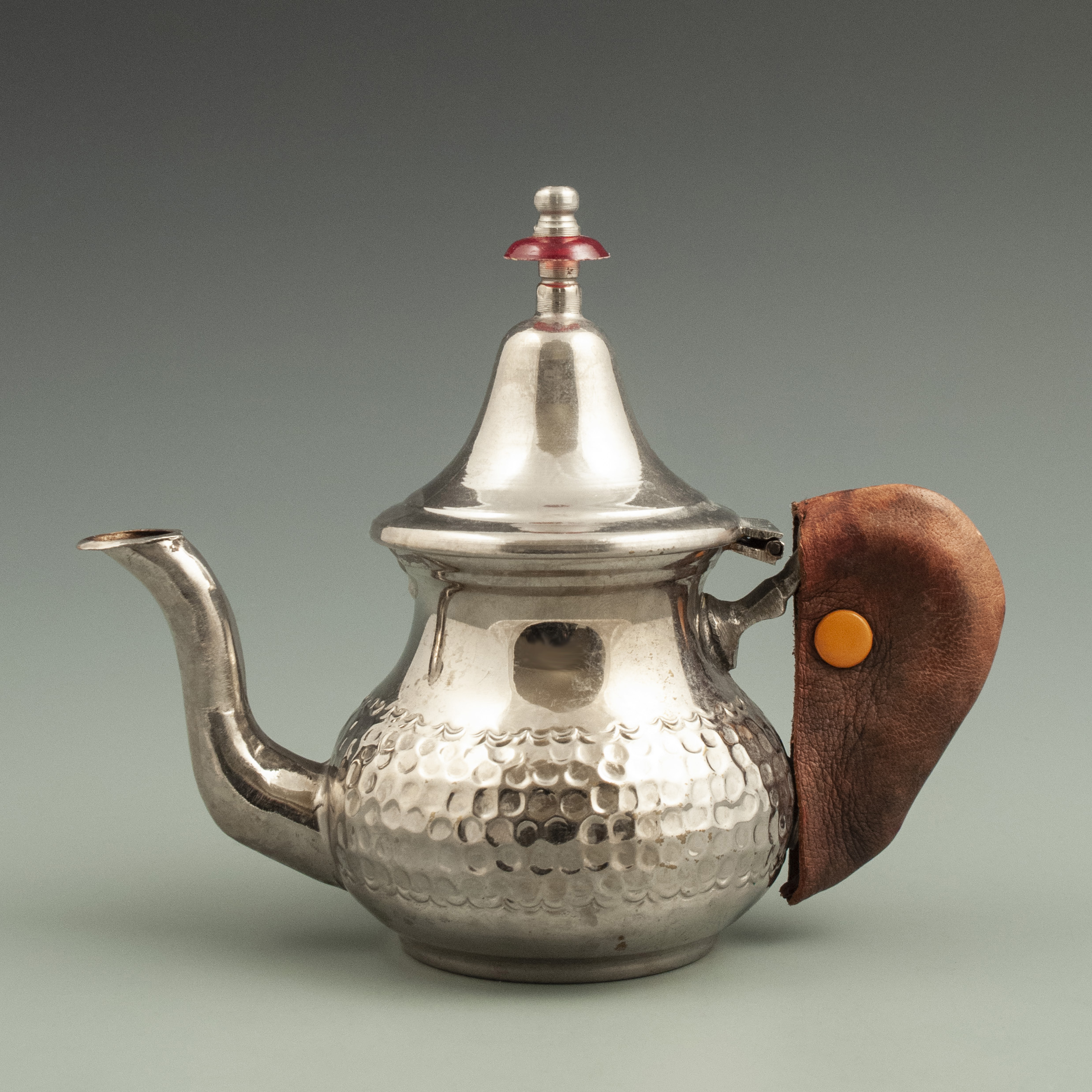Silver Teapot
Morocco, 1994

During a Q&A at a travel writers’ conference I was asked which interview, in the course of my career, had been my favorite. It was a tough question. Over the years I’ve been privileged to interview many brilliant and strange people, from Buzz Aldrin to Grace Slick. But the interview that came to mind—the one that moved me most deeply—was my 1994 encounter with the Morocco-based writer and composer Paul Bowles.
My meeting with Bowles seemed fated. Striding up to the desk at the tourist bureau in Tangiers, I’d announced my desire to meet the author of The Sheltering Sky. The clerk regarded me with amusement; it was probably his 10th such request that week. Then a voice piped up behind me. A taxi driver wearing a white djellaba and red fez said he knew where Bowles lived. Honestly? “Honestly.” Off we sped along the boulevards of Tangiers. He pulled up at a weathered apartment building, and told me the room #.
Sheepishly, I knocked on the door. The large male housekeeper who appeared was off-putting: Bowles was not to be disturbed. “I just want to convey my respect and gratitude,” I replied. The man harrumphed. “Wait,” he said, and closed the door. A moment later he reappeared: “Mr. Bowles will see you for five minutes.”
I found Bowles sitting up in bed, a lit kiff cigarette smoking in an ashtray amidst a riot of pill bottles upon his nightstand. He held out a papery hand. “I hope you didn’t come to meet one of the last Beat writers,” he warned me.
“You were never a Beat writer,” I countered. “You were much far too literary.”
“Sit down,” Bowles commanded, nodding toward the end of the bed.
The housekeeper brought in small pot of tea. We talked for hours, well into the evening—about writing, music, Morocco, travel, the future, old age, death…Bowles even questioned me about my habitual nail-biting: “It’s surely not about hunger,” he noted. When the sky grew dark, I regretfully took my leave. Bowles wrote down his address, and asked that I stay in touch.
“Thank you for your time—and for your friendship,” I said.
“It was easy,” he replied. To this day, I have never heard sweeter words.
